Localizing the SDGs
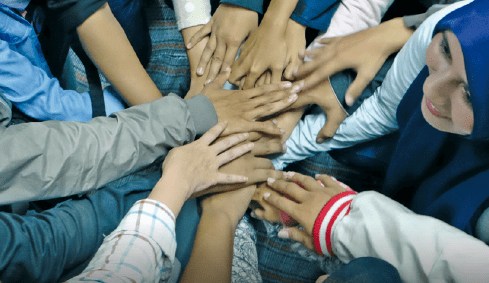
Module 4:
Decentralized Cooperation
Module 4 on Localizing the SDGs, developed with Platforma, is dedicated to SDGs-linked Decentralized Cooperation, proposing a new kind of cooperation policy and project formatting for cities, local and regional governments, their associations and linked institutions, considering the SDGs principles.
Your content goes here. Edit or remove this text inline or in the module Content settings. You can also style every aspect of this content in the module Design settings and even apply custom CSS to this text in the module Advanced settings.
SDGs Learning Module 4
Facilitator's Guide
Presentation's Template
Coming soon!
Handouts
How to Use
Our Learning Modules are designed as pedagogical guides for facilitators to design and deliver capacity building workshops following a training of trainers approach. Each learning module is divided into shorter units/chapters, which can be combined, adjusted and reorganized according to the target audience, context, and time available.
Each module is composed of:
A Facilitator’s Guide
Introducing the different theorical and practical knowledge through a set of lectures and case-studies, combined with dynamic exercises, discussion topics, and games which facilitate the reflection and sharing of knowledge among participants based on their own context and experiences.
Presentation’s Templates
A set of slides accompanying the contents presented in the facilitator’s guide, which can be adjusted as necessary to present/guide the workshop and its contents.
Handouts
The handouts, which are also included at the end of the Facilitator’s Guide, include sheets with key concept to hand out to participants, as well as instructions, tables and other resources necessary to facilitate the different exercises and dynamics presented in the module.
*For virtual workshops, we have also prepared templates for digital whiteboard applications. Contact us if you’d like to have access to them.
We encourage you to use all the tools and resources proposed in the Guides to design your own sessions and adjust them as much as possible to the local context where you work. There are no two identical audiences, nor learning experiences, so feel free to adjust the proposed tools to the needs and expectations of your learners.
Facilitators requirements
While our learning modules providing a strong base to implement workshops, we strongly recommend appointing facilitators with strong hands-on experience working at local or regional level and dealing with global agendas. The optimum size of the group for trainings based on our modules is from 10 to 16 people. For bigger groups we strongly recommend having two or more trainers, especially for the exercises that require moderation.
Target audience
Our Learning Modules are aimed at the development of capacities of Local and Regional Governments (LRGs) and their associations at political and technical level, as well as of other actors who work directly with LRGs.
The different contents are developed to be flexible enough so that you can adapt them to the reality, needs and aspirations of the attendees, that is, the political, economic, social and cultural environment of their territory. Aware of the huge differences there might exist between the LRGs around the world, the modules are precise but broad enough so as to include and reflect all kinds of LRGs. Additional reference material for metropoles and/or for regional governments is sometimes provided in order to achieve this.
Technical information
The space where you will run the learning session should be equipped with a projector, wi-fi (needed to play videos) and a flipchart. It should have movable chairs and tables so that you can easily rearrange the room for exercises. This will also allow the participants to sit and move according to their needs. According to the exercises and dynamics you will use, you will also need paper, post-it, markers, and other material as explained in the guide.
For virtual workshops, we strongly recommend a virtual meeting application (such as Zoom) which allows for breakout rooms where participants can have discussions in smaller groups. Many of the exercises can be facilitated using a digital whiteboard (such as Mural or Miro). We have prepared templates on Mural for many of the exercises. Feel free to contact us if you’d like to have access to them.
Check out the #LearningWithUCLG
free online course to get an overview of this module’s key content!
Additional Resources
Seek, Sense, Share
Your city practices in the network
City-to-City
A guide to the UCLG Learning Universe
UCLG App
“The SDGs: What Local Governments Need to Know”
Key Findings
Regional Perspectives on Decentralized Cooperation
Related News
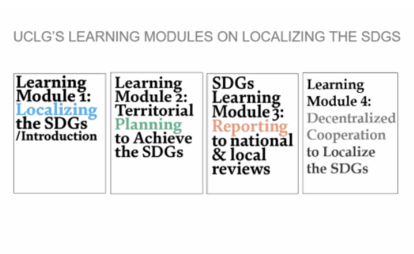
PLATFORMA and UCLG celebrated the launch of Module 4: SDGs and Decentralised Cooperation
01.03.2021
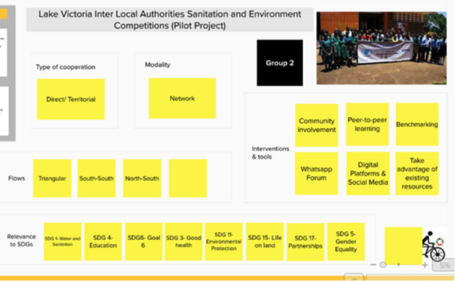
UCLG learning module on SDGs and decentralized cooperation ready to be rolled-out in UCLG-Africa
21.07.2021
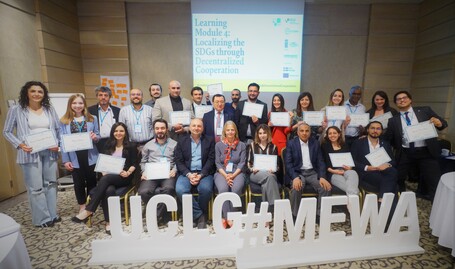
Training of Trainers on Learning Module 4 in the MEWA region
07.06.2022
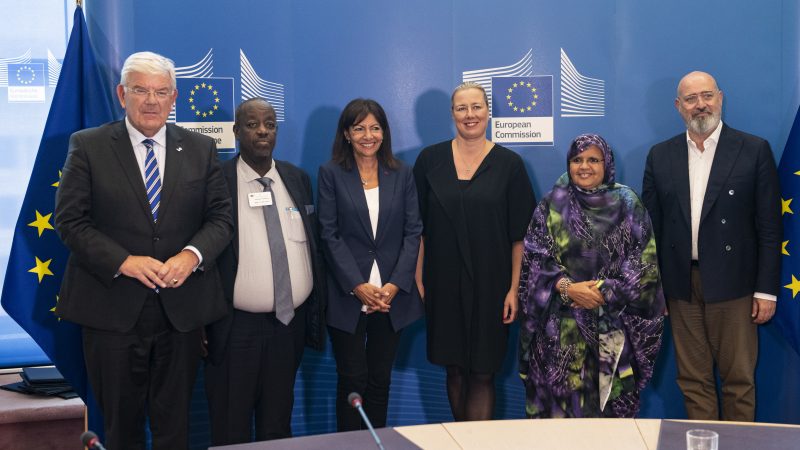
LRGs renew partnership with European Commission as key contributors to sustainable development
14.09.2022
